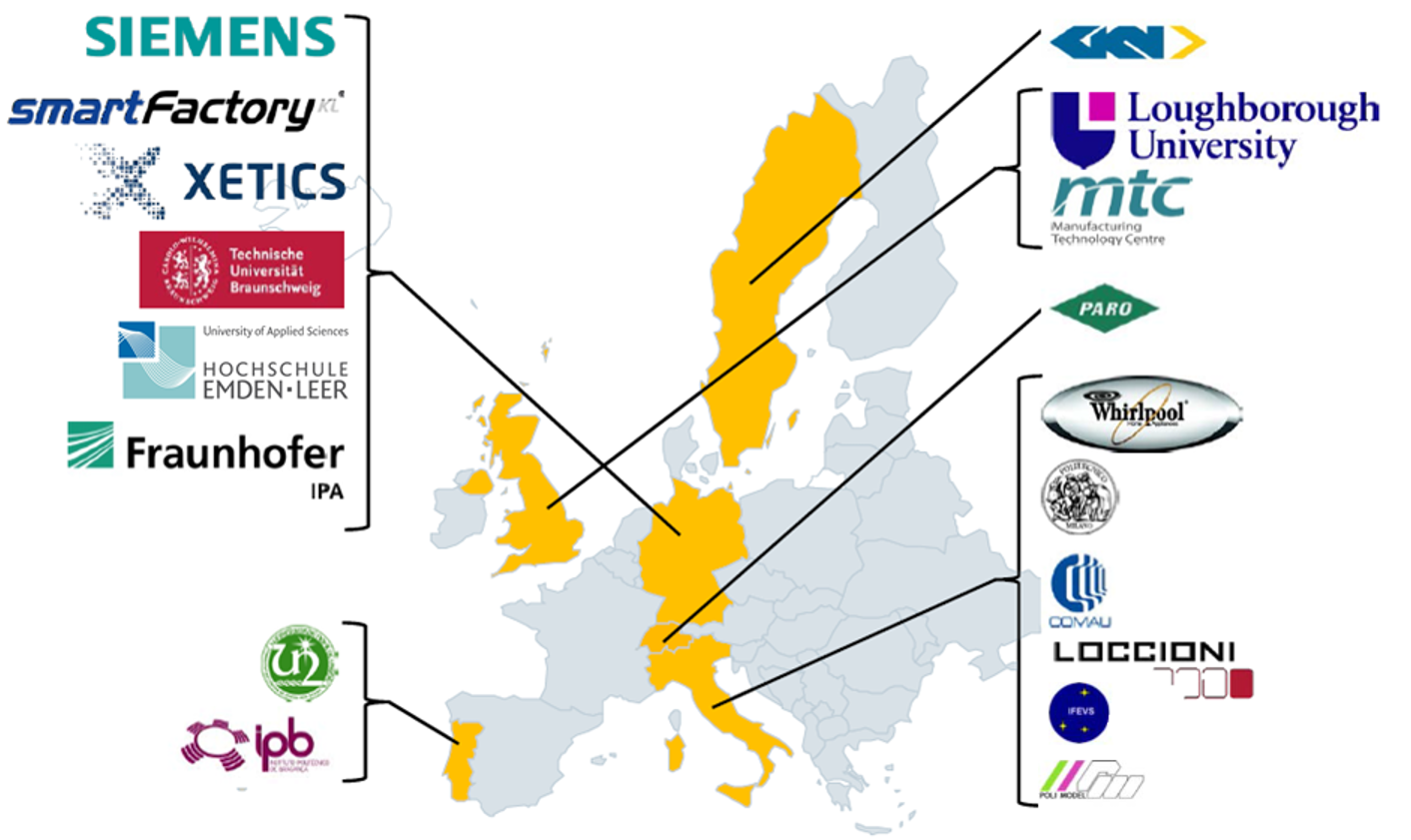

 Siemens is a global powerhouse in electronics and electrical engineering, operating in the fields of industry,
energy and healthcare as well as providing infrastructure solutions, primarily for cities and metropolitan areas.
For over 165 years, Siemens has stood for technological excellence, innovation, quality, reliability and
internationality. The company is the world's largest provider of environmental technologies. Around 40 percent
of its total revenue stems from green products and solutions. Around 43 percent of its total revenue stems
from green products and solutions. In fiscal 2014, which ended on September 30, 2014, revenue from
continuing operations totaled €71.9 billion and income from continuing operations €5.5 billion.
Siemens is a global powerhouse in electronics and electrical engineering, operating in the fields of industry,
energy and healthcare as well as providing infrastructure solutions, primarily for cities and metropolitan areas.
For over 165 years, Siemens has stood for technological excellence, innovation, quality, reliability and
internationality. The company is the world's largest provider of environmental technologies. Around 40 percent
of its total revenue stems from green products and solutions. Around 43 percent of its total revenue stems
from green products and solutions. In fiscal 2014, which ended on September 30, 2014, revenue from
continuing operations totaled €71.9 billion and income from continuing operations €5.5 billion.
At the end of September 2014, Siemens had around 357,000 employees worldwide on the basis of continuing operations. More than 6,900 researchers and developers work at facilities in Europe, Asia and the United States for Corporate Technology (CT) to shape the technological present and future of Siemens, and help to better exploit its potential as an integrated technology company. As a reliable strategic partner to the Business Units, CT intends to make significant contributions along the company’s entire value chain, from research, development, production technology and manufacturing to testing. The regional presence is critical to understand local needs: CT's departments are a global network of specialized expertise that maintains a presence in important technology centers and global hot spots. As a single-source supplier and system integrator, Siemens combines all the expertise necessary for sustainable solutions in all areas of rail transportation. This leads to a balanced comprehensive approach to rail-based mobility from trams, light rail and metro services to commuter rail lines all the way to regional services.

Whirlpool strongly believes in the power of brands and innovation to break out of an industry stalemate and challenge the market. Since 1989, Whirlpool Europe has invested more than 1.1 billion Euros in the development of its brands and the creation of innovative products that consumers are proud to own. This has proven to be a winning strategy and in just a few short years has allowed Whirlpool to become the number one brand in Europe (1996). Whirlpool invests in innovation as a key strength and distinguishing factor with regard to the competition, offering unique solutions that grant a competitive advantage and encourage consumers to choose Whirlpool products. Development at Whirlpool is driven by innovation at all stages, from design to the creation of new products, from marketing and sales strategies to supply and distribution processes.

 IFEVS is focused on the engineering of novel architectures of Micro electrical vehicles aiming at ready to
manufacture turn-key solutions.
IFEVS is a member and major driver of the cluster Torino e-district addressing the overall value chain of
electro-mobility with a focus on Micro EVs:
IFEVS is focused on the engineering of novel architectures of Micro electrical vehicles aiming at ready to
manufacture turn-key solutions.
IFEVS is a member and major driver of the cluster Torino e-district addressing the overall value chain of
electro-mobility with a focus on Micro EVs:
- new concepts,
- design and simulations,
- mass production of specific enabling systems (motor drives, transmission, HAVC, smart photovoltaic, remote control systems...),
- running vehicle prototypes,
- large scale production of Micro EVs.
- Micro EVs and M1 4WD and 4WS with two independent axles,
- Micro EV and first M1 having implemented battery partition with totally independent battery packs,
- Partial battery swapping concepts for advanced V2H.
- First microEV fully compliant with EuroNCAP most stringent safety ratings,
- Fundamental EMF rules to design a safe EV,
- Demonstrated 20km average daily range by smart photovoltaic only.

 COMAU is a global supplier of industrial automation systems for the automotive manufacturing sector and a
global provider of full maintenance services. To the “automotive” Customers worldwide, COMAU offers its
capacity as “System Integrator” and its complete engineering solutions, from product development to the
realization of industrial process automation systems. COMAU provides also integrated services to the
manufacturing plants, from assistance to the production start-up phases, up to equipment and plant full
maintenance activities. COMAU comprises the following organizational units: Body Welding, Powertrain
Systems, Robotics & Service, Adaptive Solutions. The continuous improvement of products, processes and
services, through the application of the most advanced innovative technological solutions, allows COMAU to
contribute to its Customers’ competitive advantage. Research and development activities are aimed primarily
at the evolution of technologies applied to manufacturing systems, but also to the creation of a company
portfolio in terms of standardised product/process solutions, in order to improve the overall competitiveness of
the production of your company’s affiliates.
COMAU is a global supplier of industrial automation systems for the automotive manufacturing sector and a
global provider of full maintenance services. To the “automotive” Customers worldwide, COMAU offers its
capacity as “System Integrator” and its complete engineering solutions, from product development to the
realization of industrial process automation systems. COMAU provides also integrated services to the
manufacturing plants, from assistance to the production start-up phases, up to equipment and plant full
maintenance activities. COMAU comprises the following organizational units: Body Welding, Powertrain
Systems, Robotics & Service, Adaptive Solutions. The continuous improvement of products, processes and
services, through the application of the most advanced innovative technological solutions, allows COMAU to
contribute to its Customers’ competitive advantage. Research and development activities are aimed primarily
at the evolution of technologies applied to manufacturing systems, but also to the creation of a company
portfolio in terms of standardised product/process solutions, in order to improve the overall competitiveness of
the production of your company’s affiliates.

 Brief description
The Fraunhofer-Gesellschaft is the leading organization for application-oriented research in Europe,
undertaking contract research on behalf of industry, the service sector and the government. The Fraunhofer
Institute for Manufacturing Engineering and Automation IPA provides solutions to organizational and
technological challenges, particularly within the production environment of industrial enterprises. Core
business is the development, testing and piloting of methods, components and equipment, through the
implementation of complete manufacturing systems and plants. The work is being carried out on behalf of the
manufacturing industry, or it is funded by public sector research programs, e.g. research programs initiated by
the German ministries, by various research foundations and the European Union.
Brief description
The Fraunhofer-Gesellschaft is the leading organization for application-oriented research in Europe,
undertaking contract research on behalf of industry, the service sector and the government. The Fraunhofer
Institute for Manufacturing Engineering and Automation IPA provides solutions to organizational and
technological challenges, particularly within the production environment of industrial enterprises. Core
business is the development, testing and piloting of methods, components and equipment, through the
implementation of complete manufacturing systems and plants. The work is being carried out on behalf of the
manufacturing industry, or it is funded by public sector research programs, e.g. research programs initiated by
the German ministries, by various research foundations and the European Union.
The institute disposes of know-how, many years of experience, human resources, fully equipped laboratories and technology – among others in the field of product design, process development, factory and production planning to factory operation and maintenance management by using innovative and state-of-the-art technologies and tools for modelling, simulation, visualization (VR) and optimization of products and factories. Additionally the Fraunhofer IPA expertise also covers software development and integration methodology, which is applied e.g. for equipment communication and integration, (intra)-logistics, simulation, scheduling, and evaluation of software and devices. It is actually participating to or leading a wide variety of European projects in regards to new manufacturing technologies, factory- and line planning, - simulation and -automation or production technologies. This also includes research related to the reconfiguration of manufacturing environments and flexible production systems as it has been executed e.g. in the XPress, FRAME, ManuCyte, or ManuCloud projects which have been funded by the European Commission. Based on these research activities, Fraunhofer IPA is also active in standardization. For example, it is a member of several IEC standardization consortia such as the TC65 WG 16 for digital factories, but also supports the IEC MSB (Marketing Strategy Board) with strategic recommendations. Furthermore, Fraunhofer IPA has contributed to the standardization roadmap for Industrie 4.0 and contributes to current discussions about standardization for CPS integration in manufacturing.

 GKN Aerospace Sweden (GKN) Sweden is a wholly owned subsidiary of GKN plc. In cooperation with the
world’s leading manufacturers, GKN develops and produces components for aircraft, rocket and gas turbine
engines with high technology content. Areas of importance at GKN:
GKN Aerospace Sweden (GKN) Sweden is a wholly owned subsidiary of GKN plc. In cooperation with the
world’s leading manufacturers, GKN develops and produces components for aircraft, rocket and gas turbine
engines with high technology content. Areas of importance at GKN:
- Environmental care - GKN works actively to reduce the environmental impact in the design and engineering of tomorrow’s aviation engines.
- Technology - Make It Light; the lighter an aircraft engine is, the less fuel it consumes for any given flight. GKN focuses on developing lightweight solutions for aircraft engine structures and rotors, including a range of technologies developed through Swedish national programs and EU funded programs.

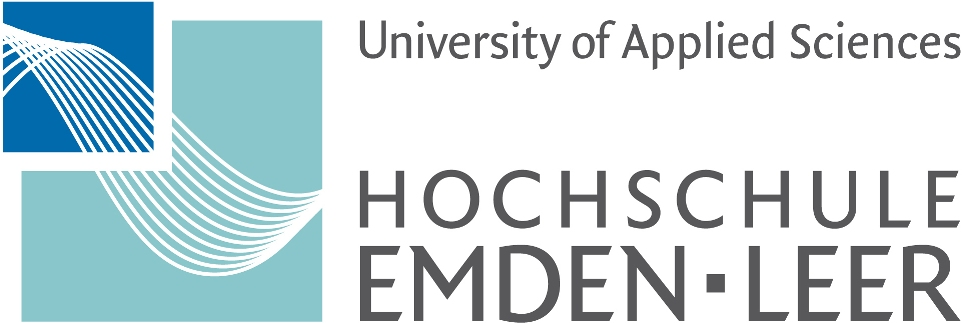 The University of Applied Sciences Emden/Leer (Hochschule Emden/Leer) was founded in 1973 in the east-
frisian cities Emden and Leer as “Fachhochschule Ostfriesland”. After a fusion with other regional universities
in 2000, it became part of the “University of Applied Sciences Oldenburg/Ostfriesland/Wilhelmshaven”, but was
re-founded as the “University of Applied Sciences Emden/Leer” in 2009. Currently, about 350 employees work
here, with 227 of these working as scientific staff. The main location of the university is Emden. Here are the
headquarters of the administration and three of the four departments: Technology, Social Work and Health
and Business Studies. The department Maritime Studies is in Leer.
The range of degree courses at the University of Applied Sciences Emden/Leer is innovative and practically
oriented. Approximately 3.500 students are enrolled in 32 degree courses at the four departments Technology,
Social Work and Health, Business Studies and Maritime Studies. Foundational degree courses immediately
follow secondary education and offer the initial Bachelor degree while post-graduate opportunities for further
study offer the more in-depth and expanded qualification of a Master degree.
The University of Applied Sciences Emden/Leer (Hochschule Emden/Leer) was founded in 1973 in the east-
frisian cities Emden and Leer as “Fachhochschule Ostfriesland”. After a fusion with other regional universities
in 2000, it became part of the “University of Applied Sciences Oldenburg/Ostfriesland/Wilhelmshaven”, but was
re-founded as the “University of Applied Sciences Emden/Leer” in 2009. Currently, about 350 employees work
here, with 227 of these working as scientific staff. The main location of the university is Emden. Here are the
headquarters of the administration and three of the four departments: Technology, Social Work and Health
and Business Studies. The department Maritime Studies is in Leer.
The range of degree courses at the University of Applied Sciences Emden/Leer is innovative and practically
oriented. Approximately 3.500 students are enrolled in 32 degree courses at the four departments Technology,
Social Work and Health, Business Studies and Maritime Studies. Foundational degree courses immediately
follow secondary education and offer the initial Bachelor degree while post-graduate opportunities for further
study offer the more in-depth and expanded qualification of a Master degree.
The research activities of the University of Applied Sciences Emden/Leer regarding engineering are endorsed by the institutes “Institut für Informatik, Automatisierungstechnik und Robotik” (I2AR), “Integrierte Produktionstechnik” (IP), “Lasertechnik Ostfriesland” (ILO), “Logistik” (HILOG), “Maschinen- und Anlagenbau” (MABU), “Medien und Technik” (IMUT) and “Energie- und Umwelttechnik” (EUTEC). Involved in the activities of the project will be mainly the institute I2AR, which has been founded in July 2001, is a non-profit research institute of the University with about 25 employees, mainly graduated engineers or working as Professors, as well as a number of students in practical training and master thesis students in the “Industrial Informatics” program. The main activities of I2AR aim at applied research in the field of Industrial Informatics Informatics. In particular, the research and innovation work concentrates on new ISA ́95-compliant platforms for the design, development, prototype implementation and corresponding validation of industrial smart cyber-physical systems using the Service-oriented Architectures (SoA), collaborative automation, cloud computing and multi-agent-based control paradigms as scientific and technological backbones. Here, the project will also benefit from I2AR ́s participation in system engineering groups within both German National and International scales, e.g. VDI/VDE, IEEE IES, OPC Foundation.

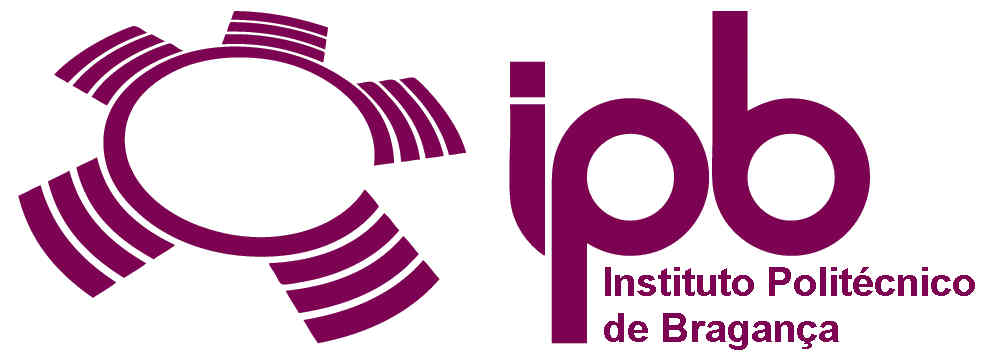 The Polytechnic Institute of Bragança (IPB) is a Portuguese Polytechnic Higher Education institution, founded
in 1983. IPB is currently divided into five schools, embracing a wide area of knowledge and technology,
including agriculture sciences, arts and sports, education and teachers training, informatics and engineering,
administration and management, health, and tourism. Nowadays, the IPB offers over 100 short-first cycle
courses, bachelor programmes and master programmes, all according to the Bologna Declaration. Since these
areas of teaching and research have been strongly developed over the last years, the Institute has witnessed
a parallel growth of its student population, reaching the number of 7,000, with 12% of international students.
As a result of a strategy to encourage further advanced studies undertaken by its members, IPB has presently
the most qualified academic staff of the Portuguese polytechnic system (the highest number of professors
holding a PhD degree per total number of staff), and an external recognition of its research activities, including
a wide number of research projects and the existence of three research units of the Portuguese Foundation for
Science and Technology (FCT) hosted in the IPB. IPB belongs to the group of Universities of Applied Sciences
(UAS) in Europe, focused on the transferability of professional skills and the integration of applied research in
their professional and technological education mission.
The Polytechnic Institute of Bragança (IPB) is a Portuguese Polytechnic Higher Education institution, founded
in 1983. IPB is currently divided into five schools, embracing a wide area of knowledge and technology,
including agriculture sciences, arts and sports, education and teachers training, informatics and engineering,
administration and management, health, and tourism. Nowadays, the IPB offers over 100 short-first cycle
courses, bachelor programmes and master programmes, all according to the Bologna Declaration. Since these
areas of teaching and research have been strongly developed over the last years, the Institute has witnessed
a parallel growth of its student population, reaching the number of 7,000, with 12% of international students.
As a result of a strategy to encourage further advanced studies undertaken by its members, IPB has presently
the most qualified academic staff of the Portuguese polytechnic system (the highest number of professors
holding a PhD degree per total number of staff), and an external recognition of its research activities, including
a wide number of research projects and the existence of three research units of the Portuguese Foundation for
Science and Technology (FCT) hosted in the IPB. IPB belongs to the group of Universities of Applied Sciences
(UAS) in Europe, focused on the transferability of professional skills and the integration of applied research in
their professional and technological education mission.

 AEA srl is a single-member company subjected to control and coordination by Summa srl. AEA is part of the
Loccioni Group, a system of companies whose synergy can supply the world of industry with turnkey solutions.
By integrating ideas, people, technologies Loccioni Group develops measure and tests solutions to improve
the quality of products and processes for the manufacturing and service industry.
The Loccioni Group has 400 employees, with a turnover in 2013 of 70 M€ and operates in 40 countries around
the world. 5% of the turnover is invested in R&D activities.
The Loccioni Group integrates its skills in measurement and testing for quality control, automation, robotics,
ICT and service, on several fields among which are Automotive, Household-appliances, Environment, Energy
Saving, Health. Loccioni Group is world leader in the design and production of systems for the quality control
of diesel and fuel injectors, and one of the world leaders in the design and production of quality control
systems for home appliances and their components.
One of the main research topic is the development of Cyber-Physical Systems in real industrial domains.
AEA srl is a single-member company subjected to control and coordination by Summa srl. AEA is part of the
Loccioni Group, a system of companies whose synergy can supply the world of industry with turnkey solutions.
By integrating ideas, people, technologies Loccioni Group develops measure and tests solutions to improve
the quality of products and processes for the manufacturing and service industry.
The Loccioni Group has 400 employees, with a turnover in 2013 of 70 M€ and operates in 40 countries around
the world. 5% of the turnover is invested in R&D activities.
The Loccioni Group integrates its skills in measurement and testing for quality control, automation, robotics,
ICT and service, on several fields among which are Automotive, Household-appliances, Environment, Energy
Saving, Health. Loccioni Group is world leader in the design and production of systems for the quality control
of diesel and fuel injectors, and one of the world leaders in the design and production of quality control
systems for home appliances and their components.
One of the main research topic is the development of Cyber-Physical Systems in real industrial domains.

 Loughborough University (Lboro) is a research-intensive university and internationally ac-claimed centre of
research excellence. The campus is home to more than 40 research institutes and centres and over 100
research groups. The Wolfson School of Mechanical and Manufacturing Engineering is one of the biggest
engineering schools of its kind in the UK. In addition to holding a prestigious Queen's Anniversary Prize in the
category of Optical engineering: applications and knowledge transfer we are home to two EPSRC National
Centres, for Innovative Manufacturing in Regenerative Medicine and for Innovative Manufacturing in Intelligent
Automation.
Loughborough University (Lboro) is a research-intensive university and internationally ac-claimed centre of
research excellence. The campus is home to more than 40 research institutes and centres and over 100
research groups. The Wolfson School of Mechanical and Manufacturing Engineering is one of the biggest
engineering schools of its kind in the UK. In addition to holding a prestigious Queen's Anniversary Prize in the
category of Optical engineering: applications and knowledge transfer we are home to two EPSRC National
Centres, for Innovative Manufacturing in Regenerative Medicine and for Innovative Manufacturing in Intelligent
Automation.
The EPSRC Centre for Innovative Manufacturing in Intelligent Automation is a partnership between Loughborough University, Cranfield University, Rolls-Royce, Air-bus, Aero Engine Controls, and the Manufacturing Technology Centre. The EPSRC Centre is part of a unique pipeline from discovery through to industrial deployment. Academics and researchers work collaboratively across the two sites and out with industrial partners, sharing their complementary expertise to develop truly multidisciplinary research. Resources include several large industrial robot arms, machine vision and motion sensing equipment. LU and the Centre have long standing expertise in successful management of large and medium sized research projects. The centre has a well-established professional management structure set up for to coordinate research programs with industry and national and international funding bodies. The centre will be supported by Loughborough University’s central research office with a proven track record for managing and supporting large research programs.
The centre is currently participating in 2 large EU FP7 research projects and co-ordinating 10 direct industrial research activities. In addition, the centre is driving knowledge transfer activities with local businesses and is responsible for outreach activities to engage local schools and colleges in STEM (science, technology, engineering and mathematics) activities in the area of intelligent automation. The centre has been involved in the development of new models for the design, ramp-up, operation and recovery of complex production systems and machines using latest knowledge modelling tools, collaborative design environments, semantic reasoning, sensor enabled intelligent plug and produce devices, industrial agents, and distributed diagnostics and prognostics models. As part of past and on-going project activities a number of semantic and probabilistic models have been developed to support the design, diagnosis, and validation of complex one-of-a-kind assembly systems using embedded intelligent devices. The accumulated expertise and know-how from these activities and developments is expected to be highly relevant for LU’s role within this project.

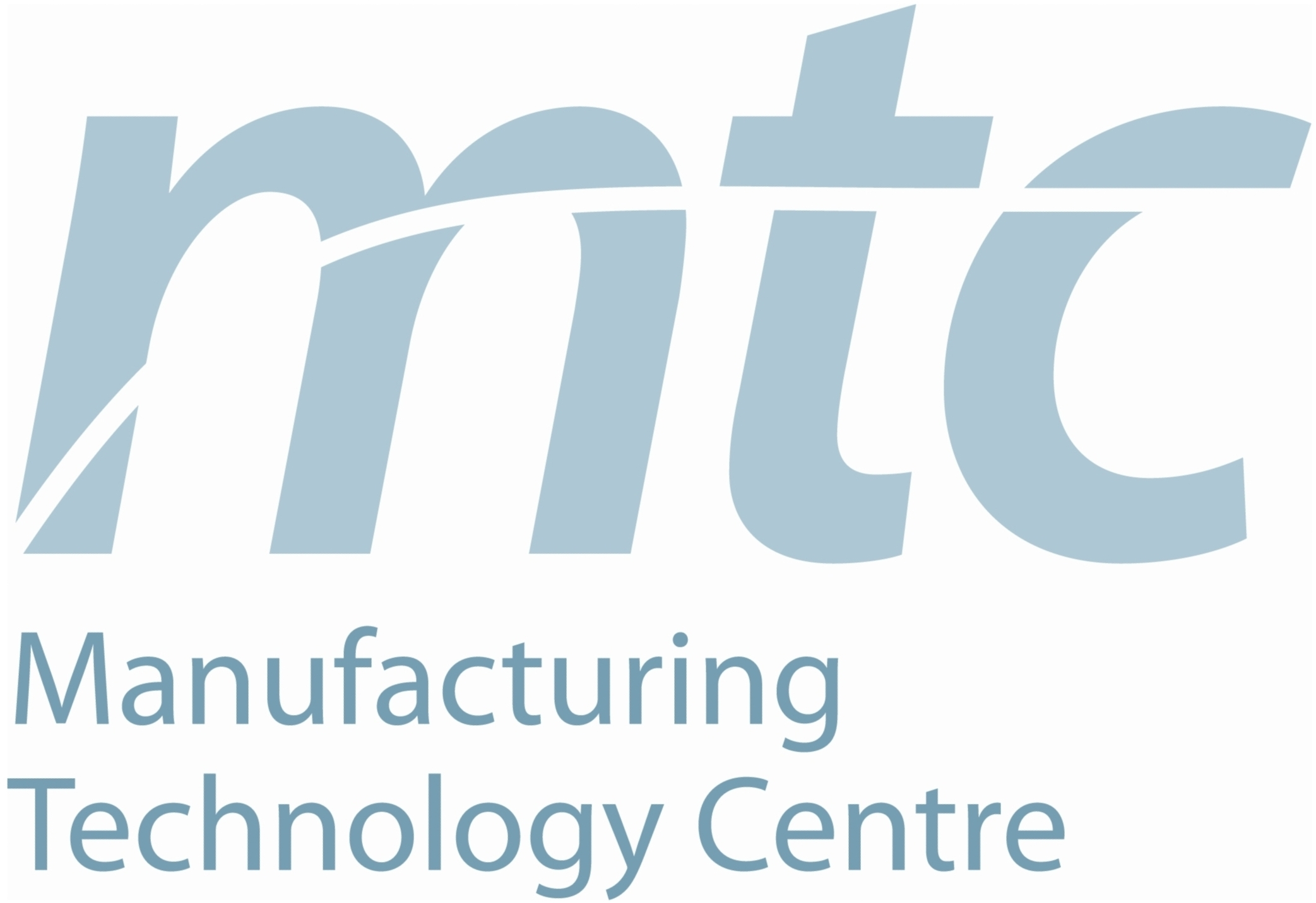 The Manufacturing Technology Centre (MTC) was established to prove innovative manufacturing processes
and technologies in an agile environment for a partnership of companies. Industrial members of the MTC
include Rolls-Royce, Aero Engine Controls, Airbus UK and Hewlett Packard. Founder research partners
include the University of Birmingham, University of Nottingham, Loughborough University and TWI Ltd.
The MTC provides a high quality environment for the development and demonstration of new technologies on
an industrial scale in a low risk environment. MTC specialises in a range of manufacturing processes that are
particularly valuable to the high value manufacturing sector: manufacturing informatics; intelligent automation;
advanced tooling and fixturing; net shape manufacturing; high integrity fabrication; electronics manufacturing;
and manufacturing modelling and simulation. The technology development programmes that are currently
running at MTC provide pre-production demonstration of manufacturing technologies through work in the TRL
4 - 6 range, integrating OEM’s, supply chain and equipment suppliers.
The MTC research portfolio encompasses projects in areas of: self-sustainable manufacturing systems,
metrology guided robotic assembly and manufacturing systems, ambient intelligence software for increased
traceability of systems through networked embedded RF sensors, simplified simulation models for controls
logic validation, intelligent fixtures with enhanced sensing and feedback capabilities, automated in-process
inspection and virtual commissioning.
The Manufacturing Technology Centre (MTC) was established to prove innovative manufacturing processes
and technologies in an agile environment for a partnership of companies. Industrial members of the MTC
include Rolls-Royce, Aero Engine Controls, Airbus UK and Hewlett Packard. Founder research partners
include the University of Birmingham, University of Nottingham, Loughborough University and TWI Ltd.
The MTC provides a high quality environment for the development and demonstration of new technologies on
an industrial scale in a low risk environment. MTC specialises in a range of manufacturing processes that are
particularly valuable to the high value manufacturing sector: manufacturing informatics; intelligent automation;
advanced tooling and fixturing; net shape manufacturing; high integrity fabrication; electronics manufacturing;
and manufacturing modelling and simulation. The technology development programmes that are currently
running at MTC provide pre-production demonstration of manufacturing technologies through work in the TRL
4 - 6 range, integrating OEM’s, supply chain and equipment suppliers.
The MTC research portfolio encompasses projects in areas of: self-sustainable manufacturing systems,
metrology guided robotic assembly and manufacturing systems, ambient intelligence software for increased
traceability of systems through networked embedded RF sensors, simplified simulation models for controls
logic validation, intelligent fixtures with enhanced sensing and feedback capabilities, automated in-process
inspection and virtual commissioning.

 PARO AG is a special purpose machine and systems builder, focusing on the automation of assembly and
injection molding processes for products with outside dimensions from 5 to 200 mm and annual production
volumes from 300’000 to 15’000’000 products.
The company has been founded in 1986 and has been active from day one on in the above mentioned field of
competence. Today, PARO employs 45 full time employees.
As of 2010 PARO has started to develop the Flextreme V3, a new, completely modular platform concept that
allows to build up flexible assembly lines for small mass production components with outside dimensions of
up to 200 x 150 x 100 mm. The aim of the concept is to enable PARO and its end-users to shorten the time-
to-production by a factor 2 compared to state-of-the-art assembly systems and to allow for fast introduction of
additional variants of the components to be produced. The Flextreme as of today has reached a high level of
mechanical design standardization. Its control system and software has not yet reached the same level of
modularity and adaptability as the mechanical building blocks. It is PARO’s aim, to equip the Flextreme with a
control hardware and software architecture that fully supports the modularity and versatility of the mechanical
building block concept. The system is intended to become a real plug and produce production equipment.
PARO AG is a special purpose machine and systems builder, focusing on the automation of assembly and
injection molding processes for products with outside dimensions from 5 to 200 mm and annual production
volumes from 300’000 to 15’000’000 products.
The company has been founded in 1986 and has been active from day one on in the above mentioned field of
competence. Today, PARO employs 45 full time employees.
As of 2010 PARO has started to develop the Flextreme V3, a new, completely modular platform concept that
allows to build up flexible assembly lines for small mass production components with outside dimensions of
up to 200 x 150 x 100 mm. The aim of the concept is to enable PARO and its end-users to shorten the time-
to-production by a factor 2 compared to state-of-the-art assembly systems and to allow for fast introduction of
additional variants of the components to be produced. The Flextreme as of today has reached a high level of
mechanical design standardization. Its control system and software has not yet reached the same level of
modularity and adaptability as the mechanical building blocks. It is PARO’s aim, to equip the Flextreme with a
control hardware and software architecture that fully supports the modularity and versatility of the mechanical
building block concept. The system is intended to become a real plug and produce production equipment.

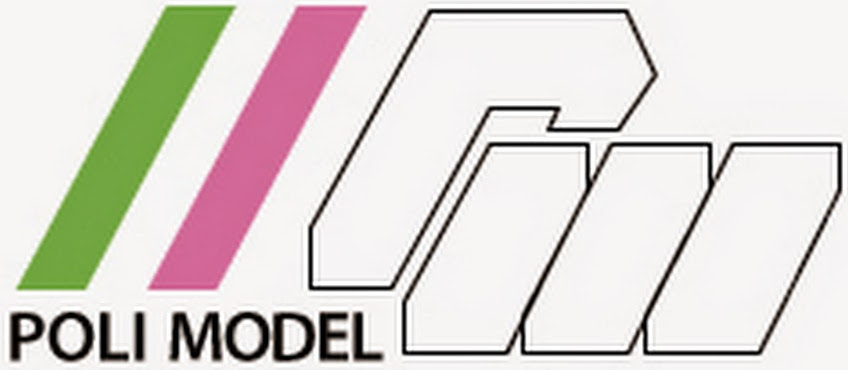 POLI MODEL SRL
Founded and managed by Mr. Piero Guerrieri. Polimodel is oriented to the design, tooling and assembly of
prototypes.
Polimodel is a very dynamic and technological firm of medium dimension (SME). It was founded in 1981. It is
composed and 20 people of which 16 are technicians specialized in CAD, CAM, Milling CNC, and Inspection
Control CAQ. PoliModel is a company specialized in see through, concept car, construction of style and
research models, industrial design and construction of master models for production, and manufactures in
resin, fibreglass, rtm, & sheet-steel, special fixture for C/N machines (contouring, drilling, profiling ).Stretch die,
Resin moulds for lamination and pre-impregnated parts to vacuum.
Polimodel has developed full concept vehicles for most of the major OEMs. Amongst the latest developments
is the TATA nano presented at the recent in Geneva motor show and the Mercedes F600 fuel cell concept
presented for instance the first time in September 2007 at the Frankfurt motor show. Most first static Ferrari
models designed by Pininfarina are made at Polimodel.
Polimodel has a close cooperation with I-FEVS sharing the mission to manufacture in the Torino area of Micro
Fully electrical vehicles. Polimodel have a key role in EU projects:
P-MOB: addressing the development of key technologies for future electrical mobility WIDE-MOB: Addressing
specifically the design of a new safety cell, light weight composites and active aerodynamics.
AVTR, Plus Moby and Free Moby: addressing vehicle concepts loaded of innovations. The vehicle, for
efficiency and typology of the electrical powertrain adopted, can be considered amongst the current state-of-
the-art concepts for urban mobility.
POLI MODEL SRL
Founded and managed by Mr. Piero Guerrieri. Polimodel is oriented to the design, tooling and assembly of
prototypes.
Polimodel is a very dynamic and technological firm of medium dimension (SME). It was founded in 1981. It is
composed and 20 people of which 16 are technicians specialized in CAD, CAM, Milling CNC, and Inspection
Control CAQ. PoliModel is a company specialized in see through, concept car, construction of style and
research models, industrial design and construction of master models for production, and manufactures in
resin, fibreglass, rtm, & sheet-steel, special fixture for C/N machines (contouring, drilling, profiling ).Stretch die,
Resin moulds for lamination and pre-impregnated parts to vacuum.
Polimodel has developed full concept vehicles for most of the major OEMs. Amongst the latest developments
is the TATA nano presented at the recent in Geneva motor show and the Mercedes F600 fuel cell concept
presented for instance the first time in September 2007 at the Frankfurt motor show. Most first static Ferrari
models designed by Pininfarina are made at Polimodel.
Polimodel has a close cooperation with I-FEVS sharing the mission to manufacture in the Torino area of Micro
Fully electrical vehicles. Polimodel have a key role in EU projects:
P-MOB: addressing the development of key technologies for future electrical mobility WIDE-MOB: Addressing
specifically the design of a new safety cell, light weight composites and active aerodynamics.
AVTR, Plus Moby and Free Moby: addressing vehicle concepts loaded of innovations. The vehicle, for
efficiency and typology of the electrical powertrain adopted, can be considered amongst the current state-of-
the-art concepts for urban mobility.


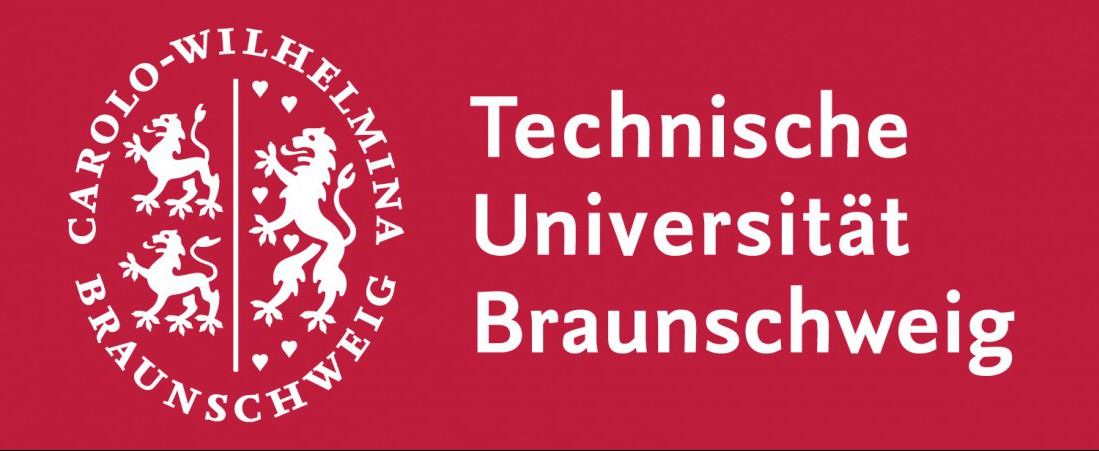 The field of action of the Chair of Sustainable Manufacturing and Life Cycle Engineering (approx. 20
researchers lead by Prof. Christoph Herrmann) within the Institute of Machine Tools and Production
Technology (IWF) at Technische Universität Braunschweig (TU BS) is the life cycle oriented optimization of
products and processes through the development and industrial application of adequate concepts, methods
and tools towards a sustainable development. Especially the topic of ́Sustainability in Manufacturing ́ is a
major focus of research. In this field of interest various research projects are currently running (e.g. diverse
funded projects in the field of energy and resource efficiency; design of innovative production systems and its
optimization, development of ecologically and socially sound lubricants; recovery of materials in production
processes) and many others have also been successfully finished in the last couple of years. From an
international perspective the research group is one of very few research teams worldwide which explicitly
considers the whole life cycle. International collaboration is a key issue, e.g. the group has established the
joint German-Australian research group on “Sustainable Manufacturing and Life Cycle Engineering” with Prof.
Sami Kara at the University of New South Wales in Sydney, Australia (www.sustainable-
manufacturing.com/en/home).
The field of action of the Chair of Sustainable Manufacturing and Life Cycle Engineering (approx. 20
researchers lead by Prof. Christoph Herrmann) within the Institute of Machine Tools and Production
Technology (IWF) at Technische Universität Braunschweig (TU BS) is the life cycle oriented optimization of
products and processes through the development and industrial application of adequate concepts, methods
and tools towards a sustainable development. Especially the topic of ́Sustainability in Manufacturing ́ is a
major focus of research. In this field of interest various research projects are currently running (e.g. diverse
funded projects in the field of energy and resource efficiency; design of innovative production systems and its
optimization, development of ecologically and socially sound lubricants; recovery of materials in production
processes) and many others have also been successfully finished in the last couple of years. From an
international perspective the research group is one of very few research teams worldwide which explicitly
considers the whole life cycle. International collaboration is a key issue, e.g. the group has established the
joint German-Australian research group on “Sustainable Manufacturing and Life Cycle Engineering” with Prof.
Sami Kara at the University of New South Wales in Sydney, Australia (www.sustainable-
manufacturing.com/en/home).

 The UNINOVA Institute is a multidisciplinary, independent, and non-profit research institute employing around
180 persons, located in the metropolitan area of Lisbon. The main aim of UNINOVA is to pursue excellence in
scientific research, technical development and advanced training and education. The staff works closely with
industry and universities, technological innovations being transferred to profitable business concepts and,
existing products, further developed to match new industrial requirements. UNINOVA contains various centres
of excellence that expose a wide variety of competences. In particular the CTS - Centre of Technology and
Systems (formerly known as CRI - Centre for Intelligent Robotics) presents well-known competences in
systems’ modelling, conception and design of architectures, development of toolkits for standards-based
platforms, and methodologies for design and implementation of intelligent manufacturing systems.UNINOVA
has managed and participated in many national and international research programmes (ESPRIT, BRITE,
IMS, IST, NMP, etc.) with RTD expertise in reconfigurable manufacturing systems, intelligent control solutions,
AI based approaches, self-organised manufacturing systems, industrial complex systems, industrial integration
and standards-based activities.
The UNINOVA Institute is a multidisciplinary, independent, and non-profit research institute employing around
180 persons, located in the metropolitan area of Lisbon. The main aim of UNINOVA is to pursue excellence in
scientific research, technical development and advanced training and education. The staff works closely with
industry and universities, technological innovations being transferred to profitable business concepts and,
existing products, further developed to match new industrial requirements. UNINOVA contains various centres
of excellence that expose a wide variety of competences. In particular the CTS - Centre of Technology and
Systems (formerly known as CRI - Centre for Intelligent Robotics) presents well-known competences in
systems’ modelling, conception and design of architectures, development of toolkits for standards-based
platforms, and methodologies for design and implementation of intelligent manufacturing systems.UNINOVA
has managed and participated in many national and international research programmes (ESPRIT, BRITE,
IMS, IST, NMP, etc.) with RTD expertise in reconfigurable manufacturing systems, intelligent control solutions,
AI based approaches, self-organised manufacturing systems, industrial complex systems, industrial integration
and standards-based activities.
UNINOVA participated during the last few years in key EU projects that build the knowledge foundation to the work to be developed in the project. Of notice are the EUPASS-IP - Evolvable Ultra-Precision Assembly Systems, which was an important mark in intelligent modular assembly systems; the Self-Learning – Reliable Self-Learning Production Systems Based on Context Aware Services project studied how to build a service based production system highly adaptative and reconfigurable based on context learning; the InLife – Integrated Ambient Intelligence and Knowledge-Based Services (STREP) project developed services within several (operational) life-cycle phases: service to support installation and ramp up of lines, remote diagnostics and maintenance services during service-life, prevention of hazard situations, etc. to optimise operational costs and improve availability, reliability, and safety of assembly lines in these life-cycle phases; the IDEAS – Instantly Deployable Evolvable Assembly Systems project, which was flagged by the Commission as a success story, demonstrated a real industrial environment (FESTO) composed of agent based manufacturing modules proving concepts such as distributed control based on intelligent devices, evolution, adaptability, and self-organisation; the PRIME project is creating new solutions for deployment by SMEs of highly adaptive, reconfigurable self-aware plug and produce assembly systems, which will use multi- agent control, dynamic knowledge sharing, integrated monitoring, and innovative human-machine interaction mechanisms. UNINOVA aims to further extend its knowledge on multiagent based manufacturing architectures, while aiming at an extension of its RTD knowledge for future university curriculum, for future RTD projects as well as to transfer the envisaged projects results to industry, while also providing consultancy services.
UNINOVA is currently one of the top research institutions in designing and implementing service/agent based control systems for evolvable and adaptive complex production systems. The accumulated expertise and know-how from these activities and developments is expected to be highly relevant for UNINOVA’s role within PERFoRM project.

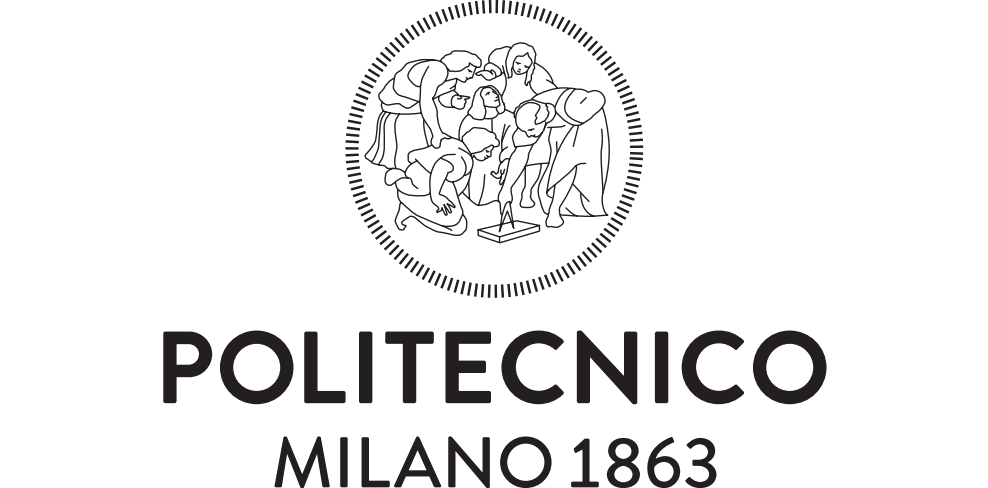 Politecnico di Milano is the most important technical university in Italy and one of best in Europe, according to
recent rankings. Since 1836, Politecnico di Milano has been active in several scientific and technical fields and
will join through the Department of Economics, Management and Industrial Engineering (DIG). In particular,
the research group of Manufacturing will be involved in this project with its specific competences in the fields of
Manufacturing Strategy, ICT for Manufacturing, Social and Environmental Sustainability in Manufacturing,
Product and Service Development, Manufacturing Systems Design, Production and Maintenance
Management, Education in Manufacturing in which the group can be considered the leader among the Italian
Universities and Research Centers. The group has been involved in several European and international
research projects such as InCoCo-S, Socrades, LeanPPD, ActionPlant, PlantCockpit, S-MC-S, MSEE, EMC2,
IMC-AESOP, LinkedDesign, CTC, MAN-MADE, white-R, Target, and ELICiT. Furthermore, it is very active in
roadmap and technology foresights, where has been the coordinator of the IMS NoE and of the IMS2020 and
partner of ActionPlanT, Pathfinder, So-Smart and ManuSkills. The group is member of EFFRA and actively
participates in the IRAG, contributing to the roadmapping at European level. The group has experience also in
project coordination.
Politecnico di Milano is the most important technical university in Italy and one of best in Europe, according to
recent rankings. Since 1836, Politecnico di Milano has been active in several scientific and technical fields and
will join through the Department of Economics, Management and Industrial Engineering (DIG). In particular,
the research group of Manufacturing will be involved in this project with its specific competences in the fields of
Manufacturing Strategy, ICT for Manufacturing, Social and Environmental Sustainability in Manufacturing,
Product and Service Development, Manufacturing Systems Design, Production and Maintenance
Management, Education in Manufacturing in which the group can be considered the leader among the Italian
Universities and Research Centers. The group has been involved in several European and international
research projects such as InCoCo-S, Socrades, LeanPPD, ActionPlant, PlantCockpit, S-MC-S, MSEE, EMC2,
IMC-AESOP, LinkedDesign, CTC, MAN-MADE, white-R, Target, and ELICiT. Furthermore, it is very active in
roadmap and technology foresights, where has been the coordinator of the IMS NoE and of the IMS2020 and
partner of ActionPlanT, Pathfinder, So-Smart and ManuSkills. The group is member of EFFRA and actively
participates in the IRAG, contributing to the roadmapping at European level. The group has experience also in
project coordination.

 XETICS offers mission-specific cloud-based systems for monitoring, tracking, and tracing as well as controlling
and planning production processes, both for small production units (small and medium-sized companies, labs,
research institutions) and large productions (lines, factories). The XETICS GmbH was founded in 2012 as start
up by Dr. Philipp Dreiss. For more information: www.xetics.com.
XETICS develops and provides concepts and systems for acquisition of equipment data from the shopfloor for
maintenance, renovation and reconfiguration. Therefore several approaches including lightweight manual
acquisition with current and future mobile devices and integration of equipment using self-description are
realized. The collected data contains performance, failure or health data of the monitored equipment and is
stored in an IT-System for the support of maintenance and renovation and reconfiguration decisions. Based on
this information and prior knowledge of productions planners, equipment manufacturers and other participants
in the lifecycle of todays and future production systems, the XETICS software provides options on how
maintenance and renovation and reconfiguration plans can be formulated and supported by IT-Systems. The
possibilities how IT-systems can schedule maintenance and renovation activities for each individual equipment
and how the system can assist maintenance personal in its tasks.
XETICS offers mission-specific cloud-based systems for monitoring, tracking, and tracing as well as controlling
and planning production processes, both for small production units (small and medium-sized companies, labs,
research institutions) and large productions (lines, factories). The XETICS GmbH was founded in 2012 as start
up by Dr. Philipp Dreiss. For more information: www.xetics.com.
XETICS develops and provides concepts and systems for acquisition of equipment data from the shopfloor for
maintenance, renovation and reconfiguration. Therefore several approaches including lightweight manual
acquisition with current and future mobile devices and integration of equipment using self-description are
realized. The collected data contains performance, failure or health data of the monitored equipment and is
stored in an IT-System for the support of maintenance and renovation and reconfiguration decisions. Based on
this information and prior knowledge of productions planners, equipment manufacturers and other participants
in the lifecycle of todays and future production systems, the XETICS software provides options on how
maintenance and renovation and reconfiguration plans can be formulated and supported by IT-Systems. The
possibilities how IT-systems can schedule maintenance and renovation activities for each individual equipment
and how the system can assist maintenance personal in its tasks.
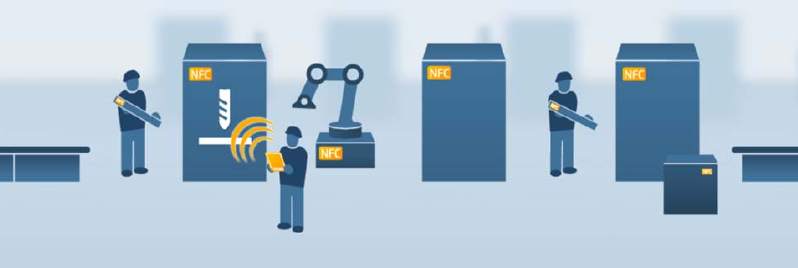
Deployment example with RF-ID (NFC) tags and mobile devices for light weight data acquisition From the IT-perspective XETICS customizes and adapts several IT-components and interfaces including the following:
- A cloud-based backend can be customized for data storage, aggregation and evaluation. This backend system can be adapted to integrate all other IT-systems. This will be done by providing interfaces for remote systems, like mobile devices, PLCs (i.e. via OPA, ...) or equipment using self-description and by integrating software components from other partners using libraries or a service architecture.
- A mobile (Android/iOS) App can be used for lightweight data-acquisition and support of maintenance tasks. Another important task which can be supported by mobile Apps is the monitoring of the health status to support real time decisions.
- A web-based User-Interface to the XETICS MES can be used to allow convenient access to the required information for production planers and equipment manufacturers. The provided web-based user interface is structured into several apps allowing the integration of software components of other project partners.

